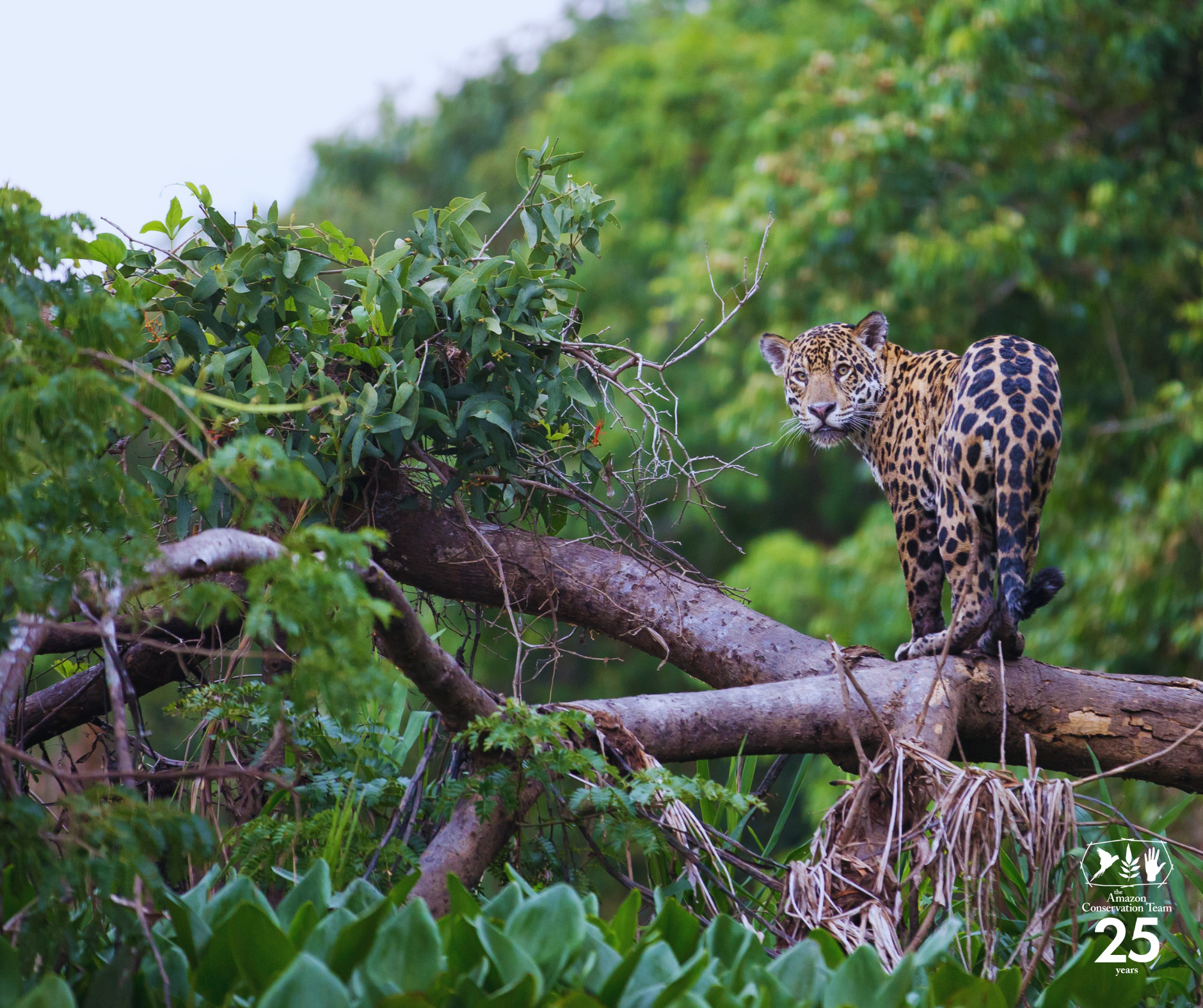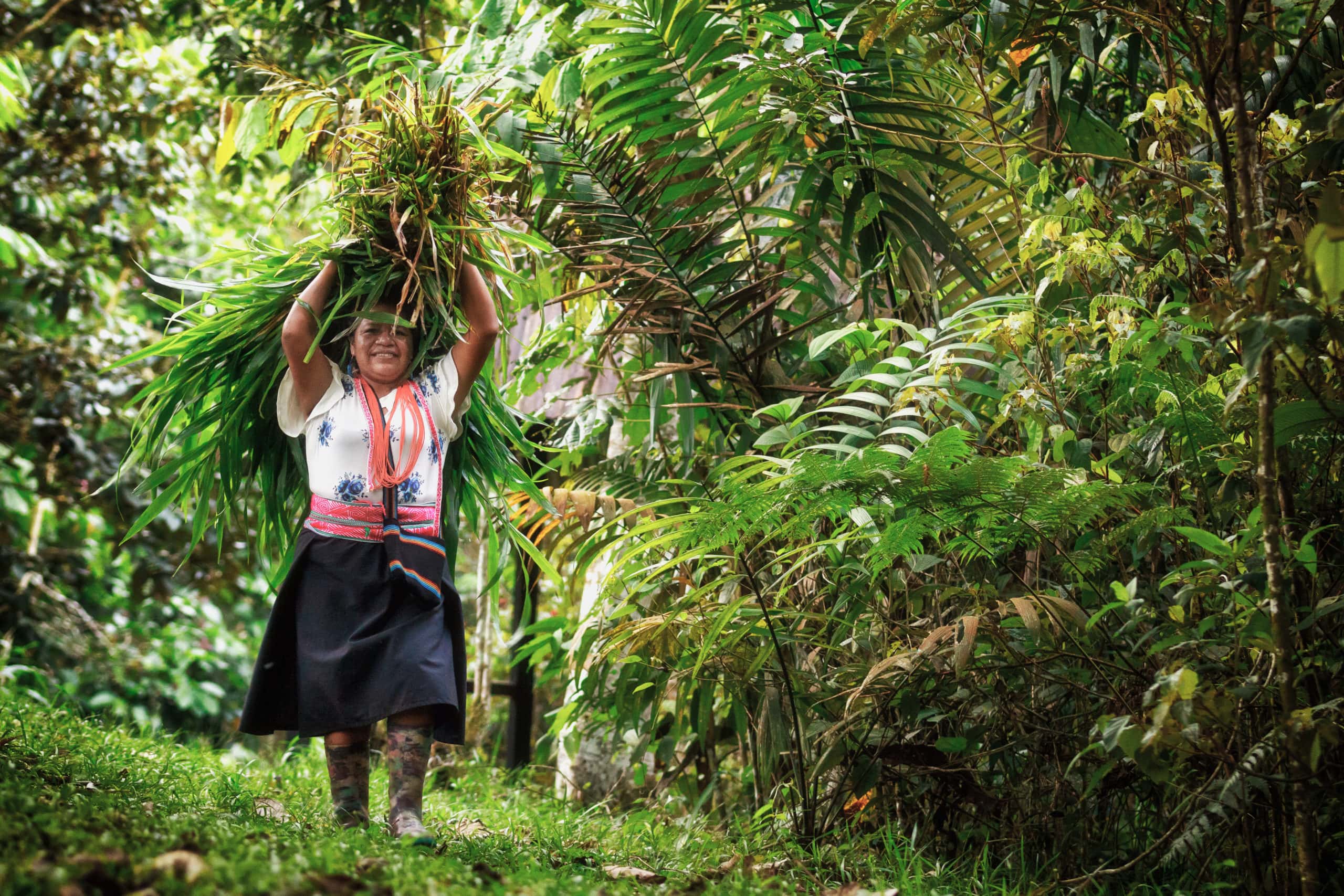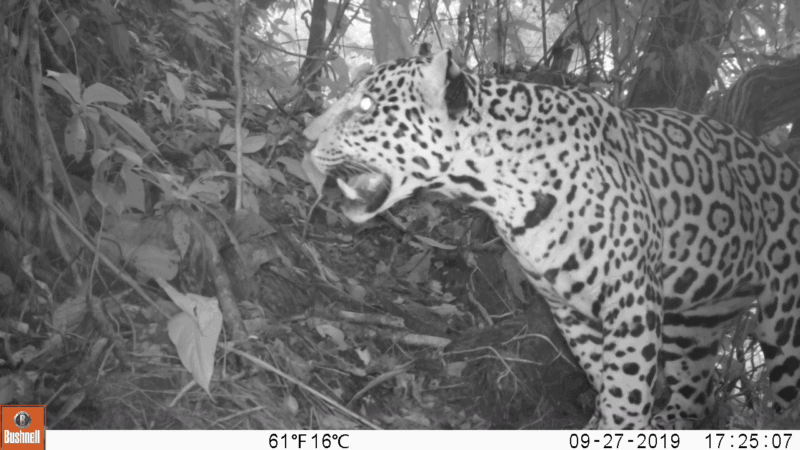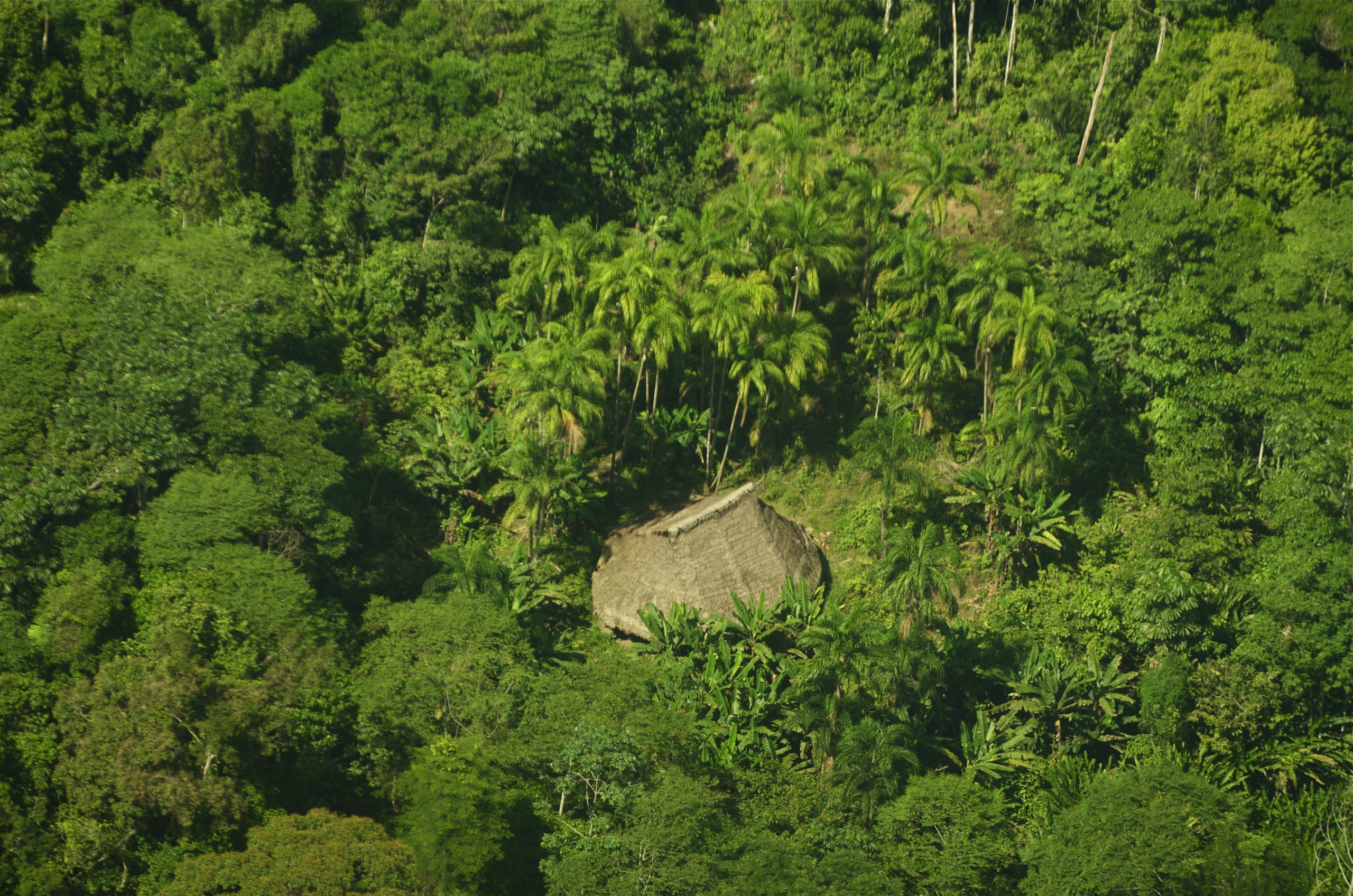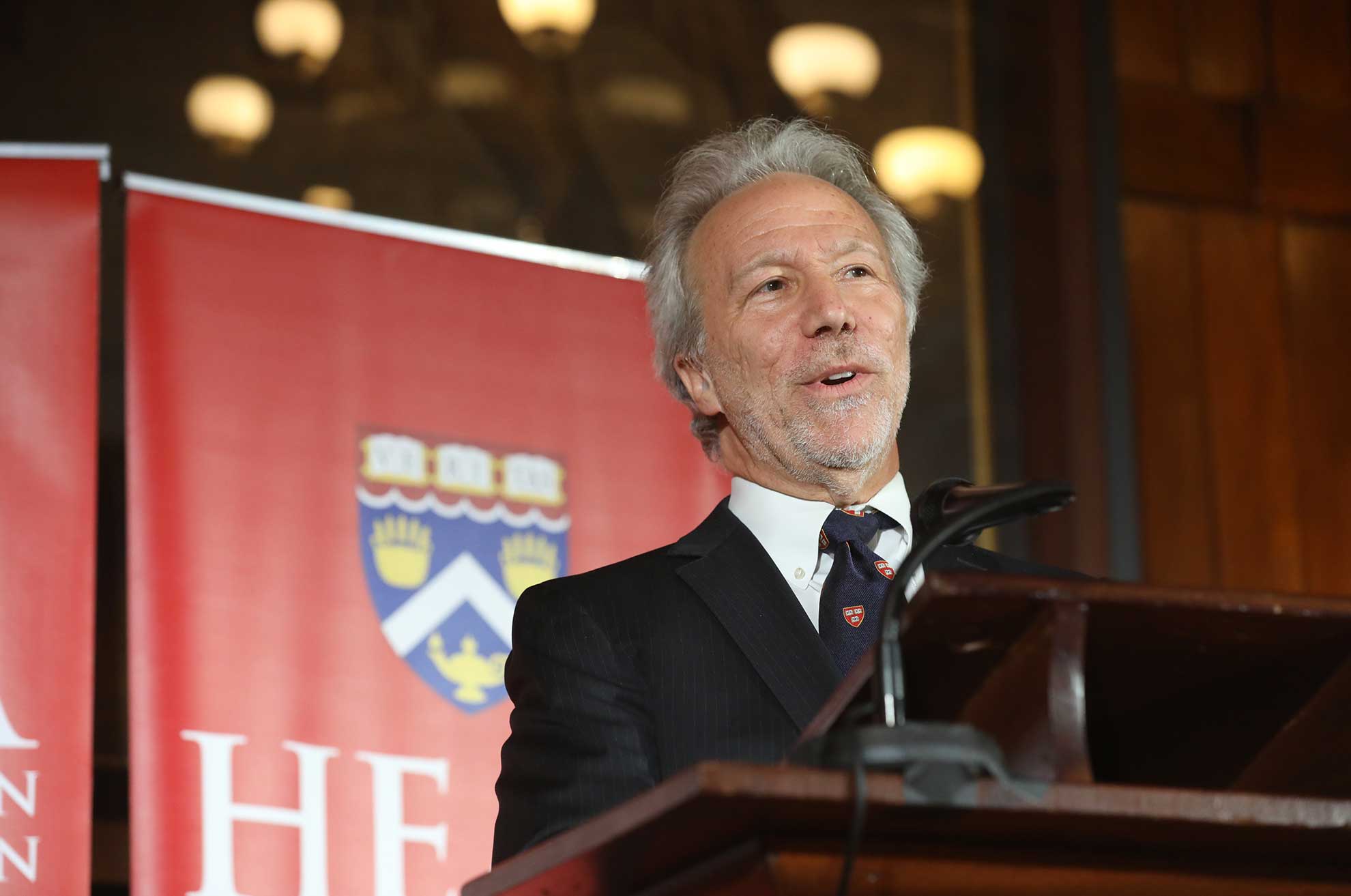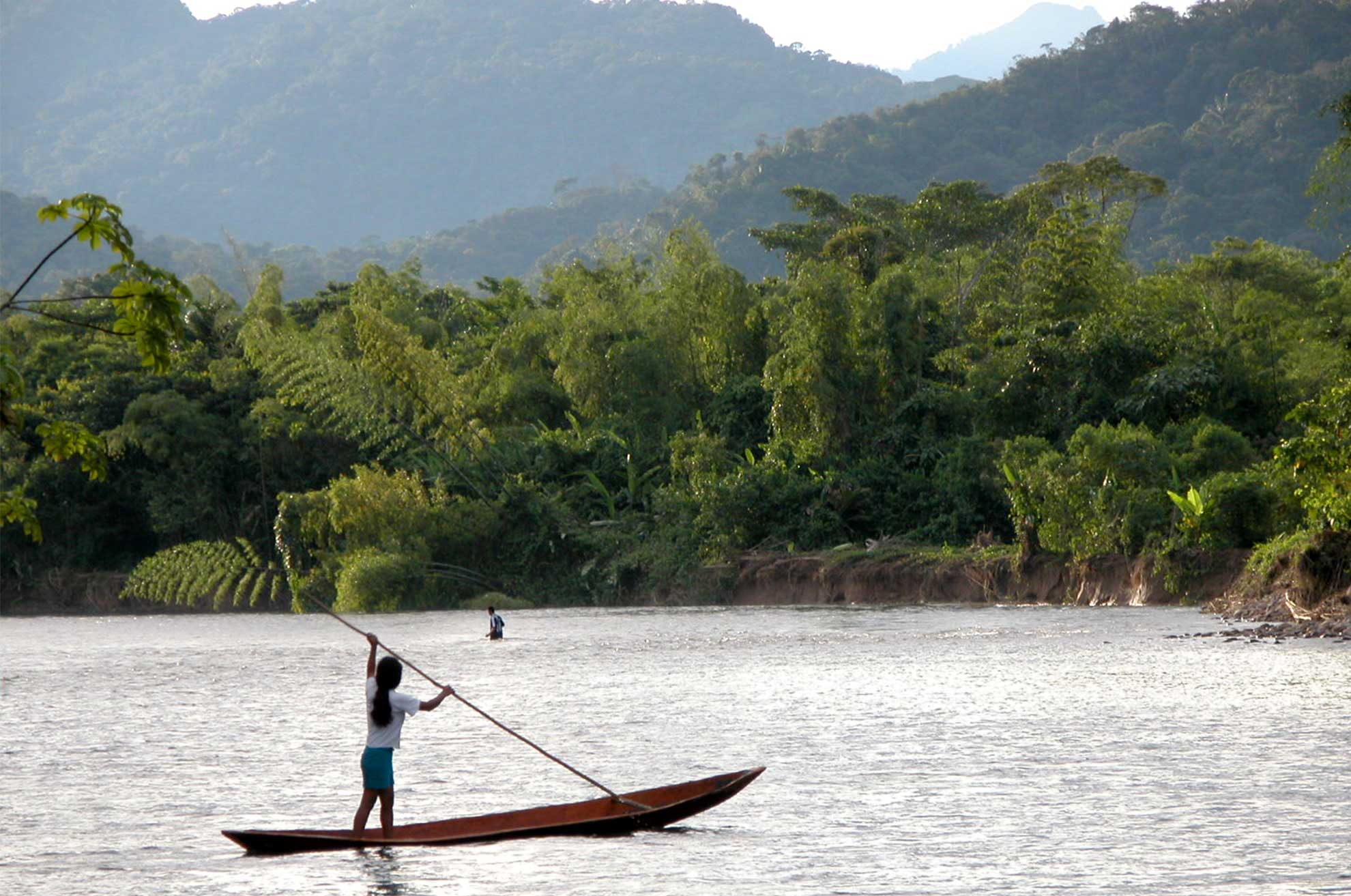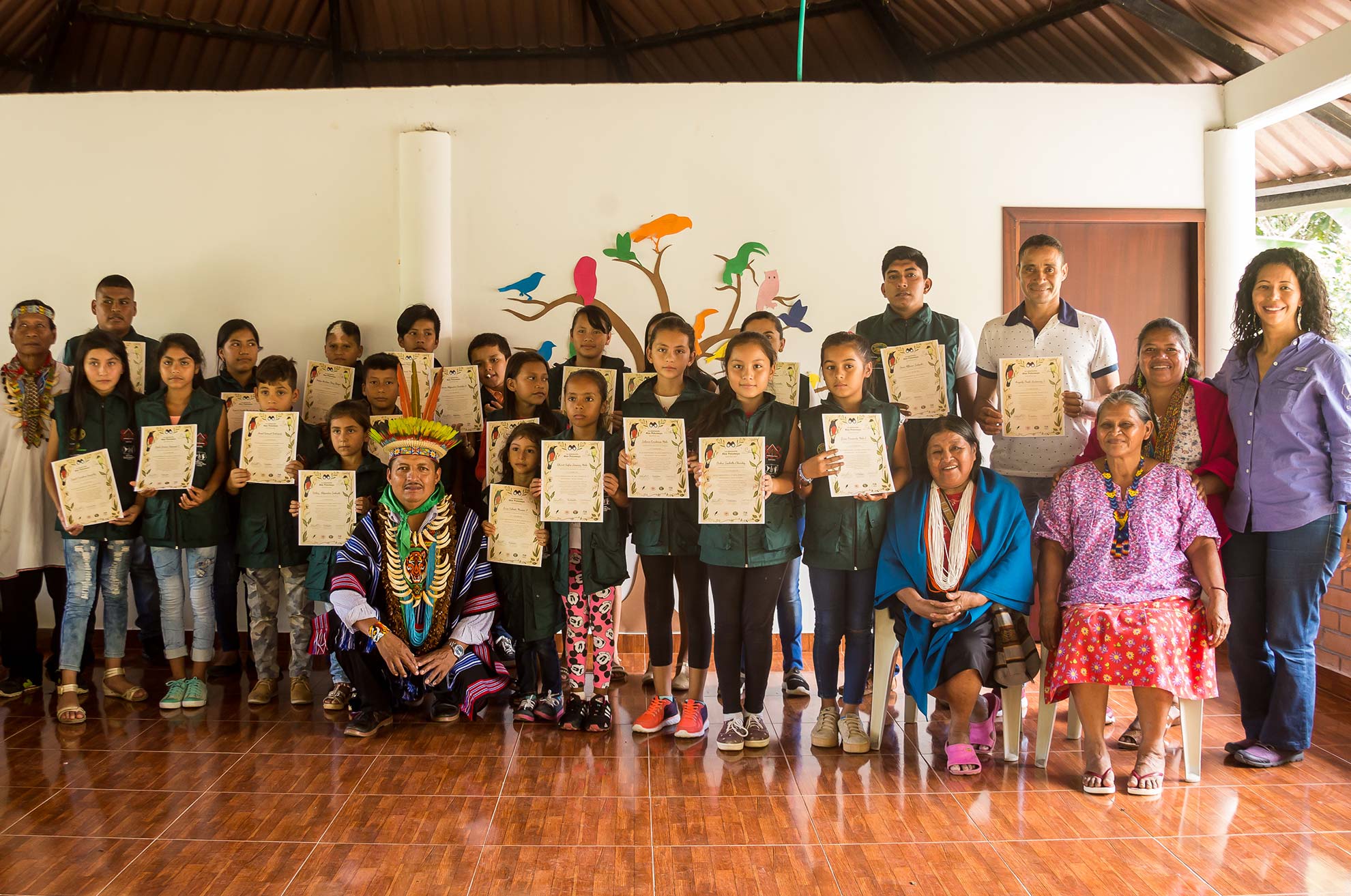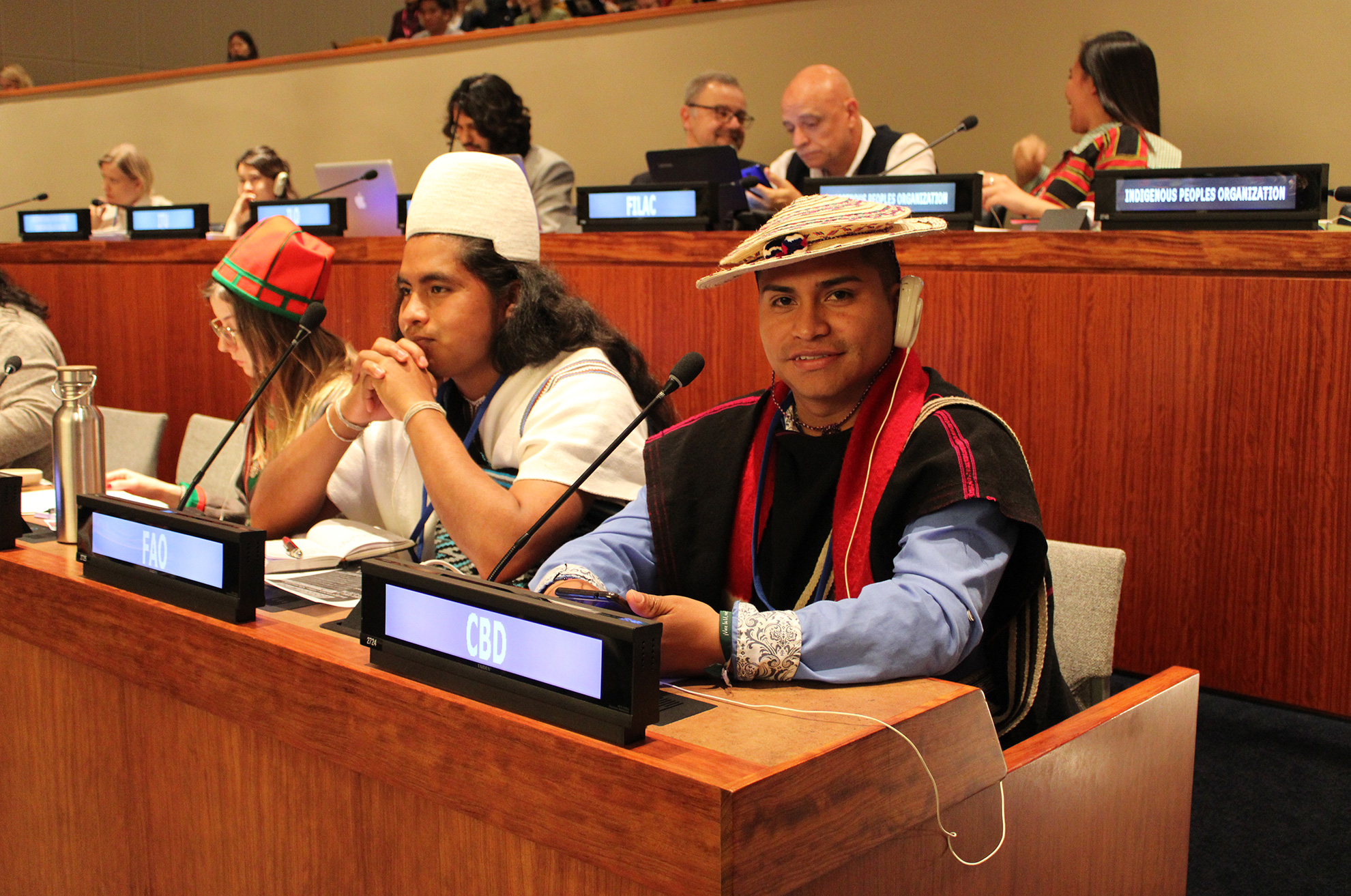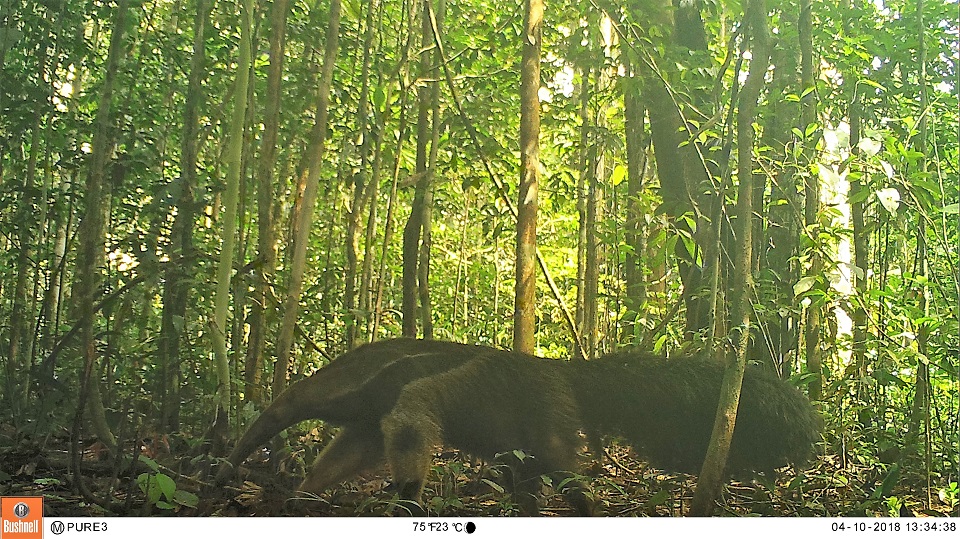Posts Tagged ‘Amazon conservation team’
How protecting the Jaguar is essential to conserving the Amazon
The Amazon Conservation Team (ACT) and Colombia’s Universidad de la Amazonía continue their project “Live and Coexist”, through which they seek to defend carnivorous animals in Caquetá.
Read MoreGoing at Nature’s Pace: The Story of ASOMI
With the occasion of ACT’s 25th anniversary, Maria del Rosario Chicunque—Charito, the formidable leader that some of you have met—and I want to share the wonderful, glorious, painful, and ultimately extraordinary path that led to the creation of ASOMI, the Association of Indigenous Women, and their private reserve in Colombia. ASOMI’s headquarters is aptly called La Chagra de la Vida, or the Garden of Life. As with all gardens, it nourishes us with blessings of food, beauty, and joy, but it needs proactive tending and weeding in return—never-ending tasks that can give us scrapes, blisters, and scars.
Read MoreCómo proteger al Jaguar es fundamental para cuidar la Amazonía
Amazon Conservation Team (ACT), junto con la Universidad del Amazonía, continúan en su proyecto “Vive y convive”, en el que buscan defender a los animales carnívoros en el departamento del Caquetá, en Colombia, que tiene la mayor tasa de deforestación del país. Esta iniciativa busca busca vincular a las comunidades campesinas de la zona en la defensa, no sólo del jaguar, sino de cientos de especies de fauna y flora que habitan este departamento, que es la puerta a la Amazonía colombiana.
Read MorePueblos Indígenas en Aislamiento o Estado Natural en Colombia: Una historia reciente de los retos para su protección
Since the end of the 19th and beginning of the 20th century, there were rumors from rubber and animal skin traders about the presence of peoples who took shelter deep in the adjoining forests. These are peoples who avoid all forms of contact with the surrounding society.
Read MoreIndigenous Peoples in Isolation in Colombia: A recent history of the challenges involved in their protection
Since the end of the 19th and beginning of the 20th century, there were rumors from rubber and animal skin traders about the presence of peoples who took shelter deep in the adjoining forests. These are peoples who avoid all forms of contact with the surrounding society.
Read MoreACT President & Co-Founder Receives Humanitarian Award from Harvard Extension School
Harvard Extension School has presented the 2019 “Michael Shinagel Award for Service” to Dr. Mark Plotkin of The Amazon Conservation Team.
Read MoreWhy are they persecuting us?
On this path of leadership, and as long as I can remember, I have experienced war. By: Waira Nina Jacanamijoy Mutumbajoy Original article appears in El Tiempo May 28, 2019 I have the honor of providing this space to Waira Nina Jacanamijoy Mutumbajoy, an artist and leader of the Inga people of the Yurayaco community…
Read MoreTraining Children and Youth as Bird Watchers of the Amazon-Andes Transition Region
“Exploring our Territory Through Birds” is a program through which ACT and Alas de Putumayo motivate children to study the different habitats of the birds of Putumayo.
Read MoreACT Indigenous Fellowship Program
The Amazon Conservation Team (ACT) has established an Indigenous Fellowship Program in partnership with Colombia’s Universidad Externado to provide indigenous college students with the opportunity to better understand the functioning of international cooperation agencies, international conventions, and funding aimed at supporting the rights of indigenous communities.
Read More30 Species of Animals Have Been Found and Filmed in the Río Puré National Park Using Camera Traps
Original article appears in El Espectador. Written by Redacción Medio Ambiente. This is the first time that this type of monitoring is being carried out in this protected area. Oncillas, tapirs and anteaters were among the animals recorded. The camera traps are not being placed in the vicinity of areas where indigenous peoples exist in isolation.…
Read More

